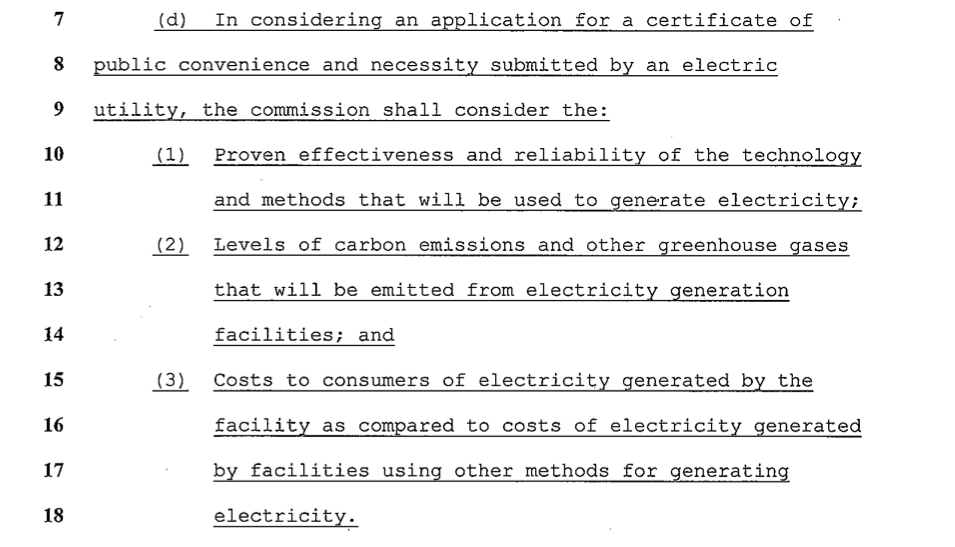This week, the Geothermal Working Group Interim Report is being distributed to Hawai‘i state legislators. The report provides lawmakers with an evaluation of using the hot water reservoir in certain locations of Big Island to provide local and renewable energy for electricity and transportation.
In 2010, Senate Concurrent Resolution 99 was approved by a vote of 23-2 in the Hawai‘i State Senate and was unanimously approved in the state House of Representatives. SCR 99 created an 11-member Geothermal Working Group to evaluate geothermal energy for electricity in the County of Hawai‘i. The resolution instructed the Working Group to consider any potential impacts that expanding geothermal production might have on native forests, wildlife habitat, and Native-Hawaiian values and practices. The group is also tasked with recommending steps that can be taken to mitigate any adverse consequences from geothermal.
There is an urgency to developing new energy resources because Hawai‘i, like most of the world, is overwhelmingly dependent upon depleting supplies of fossil fuels. The consensus among credible resource scientists and many economists is that petroleum prices will rise to unprecedented levels in a few years. Since Big Island uses oil for 90 percent of its power, this is of the utmost concern to leaders in government and business. Hawai‘i is the most petroleum-dependent state in the nation; the Big Island alone exports $1 billion annually to purchase oil for power. Geothermal is viewed as an important component in a suite of local and available energy resources.
Geothermal is one of Hawai‘i’s main energy building blocks. Unlike solar and wind power, it is what’s called a “firm” resource—-always there. Molten rock (magma) remains below Earth’s crust, heating nearby rock, rainwater, and seawater that has seeped deep into the earth. Once those geothermal waters are brought to the surface, fresh-water steam is created and sent to the power plant driving turbines that in turn drive a generator to produce electricity. Afterward, the brine and gases are re-injected back into the ground below the water table.
Binary-cycle plants are the most advanced. Their closed-loop circulation system means that no excess gases or fluids reach the open air. Hawai‘i’s geothermal power plant utilizes the closed-loop binary system.
=========
Commentary regarding the Geothermal Working Group Interim Report
Lloyds of London, in its white paper “Sustainable Energy Security: Strategic Risks and Opportunities for Business,” warns its business clients to be prepared for $200 per barrel oil by 2013. “Modern society has been built on the back of access to relatively cheap, combustible, carbon-based energy sources. That model is outdated.”
There is little sign that energy demand will go down, with forecasts suggesting a 40% increase by 2030. (Lloyds of London)
With average rates of decline from current fields, just to maintain current production levels would require the equivalent of a new Saudi Arabia coming on-stream every three years. (Lloyds of London)
While the vast majority of investment in the energy transition will come from the private sector, governments have an important role in delivering policies and measures that create the necessary investment conditions and incentives. (Lloyds of London)
Public Relations
The development of geothermal energy in the Kilauea East Rift Zone has stirred a significant amount of controversy. The experimental HGP-A power plant (1976-1989) was not perceived as a “good neighbor” due to emission releases, the extent of brine ponds beyond the plant boundaries, and an unkempt appearance of the plant itself because of limited maintenance. Further exploration was opposed, often vehemently, by people expressing concern over various issues, including impacts on Hawaiian cultural and religious values, potential geologic hazards, public health, and loss of native rainforest, as well as changing the rural nature of Puna. During the establishment of the Puna Geothermal Venture plant, an episode of planned open venting and a number of uncontrolled steam releases stimulated the evacuation of some nearby residents and enhanced fears that the resource could not be safely tapped.
The PGV plant has been operating since 1993; most residents have accepted it as part of the grid power supply. However, there is continued concern about health and environmental issues among some residents near the plant. The relationship between PGV and its neighbors appears to have improved with better communication between the company and the adjacent residents.
Advantages
From an environmental standpoint, it’s difficult to find a more attractive option than geothermal power. Because the system is essentially a closed-loop; there are virtually no emissions, making it arguably the cleanest choice for energy production. Although other power sources, such as solar panels, also have no emissions, the treatments used in production of solar panels are much more environmentally degrading than building a geothermal plant to supply a comparable amount of energy.
The Geothermal Working Group advocates discussions on related topics and concerns – primarily, the best integration into the existing electrical-power grid of a variety of renewable energy resources. Hawaii is the most petroleum-dependent state in the nation; Big Island alone exports $1 billion annually to purchase oil for power. The future promises an even greater demand for power. Hawaii can meet tomorrow’s power needs by utilizing locally available resources. The report also analyzes the community, environmental and economic impacts of energy development in Hawaii.
Recommended Actions for the Hawaiian Legislature
- Fund research and field work to catalog geothermal energy resources available on Big Island.
- Fund research and field work to analyze the impact of transitioning from petroleum-fired power plants to geothermal.
- Authorize a legislative agenda item to reconsider how the royalties from geothermal production are distributed to the state, county, and the neighborhoods that border geothermal plants.
- Designate geothermal funds for programs that benefit local communities and that further develop the resource, rather than placing the royalties in the land fund.
- Make a highly-efficient, non-fossil energy future a top priority.
The Geothermal Working Group Interim Report is intended for Hawaii state legislators and provides an analysis of developing new geothermal energy resources for the purpose of reducing Hawaii’s dependence on foreign petroleum. Senate Concurrent Resolution 99, sponsored by Senator Russell Kokubun, mandates an 11-member Geothermal Working Group. The resolution instructs the Working Group to consider any potential impacts that expanding geothermal production might have on native forests, wildlife habitat, and Native-Hawaiian values and practices.
Overview
Senate Concurrent Resolution 99 created the Geothermal Working Group to evaluate geothermal energy as the primary base power for electricity in the County of Hawaii. An analysis of the existing data and a synthesis of expert testimony evince overwhelming support for a plan of action that includes transitioning from fossil-fuel energy plants to local and renewable energy plants, while identifying and responding to public safety and environmental concerns at each stage of development. Funding for important research is required to ensure that the transition never harms people, property, or wildlife and that a robust and reliable supply of energy is always available. It is critically important to the welfare of Hawaiians that the transition begin immediately.
The Working Group’s principal findings are as follows:
- Multiple geothermal plants are the most prudent approach.
- Historically, geothermal is a lower-cost energy resource.
- Geothermal has the potential to supply baseload electricity, although it has not yet demonstrated baseload consistency in its application in Hawaii.
- Geothermal is a renewable resource indigenous to Big Island and can neutralize the price volatility of petroleum fuel for the county, both in terms of the electrical grid and in terms of transportation.
- Additionally, products that assist island agriculture can be cost-effectively produced with geothermal and replace the importation of products made on the mainland from fossil fuels.
- Thus, Geothermal has a significant potential to be Big Island’s primary energy resource.
Royalties paid to Hawaii from geothermal
The amount of geothermal royalties paid to the State of Hawaii fluctuates each fiscal year, since power output and sales to HELCO vary. Over the last seven years, however, there is a trend of increasing revenues. Geothermal Royalties from 2001 to 2009 ………. $12,456,486.99
The Necessity for Action
The Geothermal Working Group advises a course of action that leads to energy independence and away from fossil-fuel dependence. The group advocates debate that addresses clean, renewable, and local energy production. They advise transitioning away from the use of imported and polluting fossil fuels. They request that the best and brightest face the challenges of controlling our destiny through innovation rather than depending so heavily upon the importation of foreign petroleum, whose price spikes undermine our economy and, ultimately, our way of life. There are no fossil fuel reserves in Hawaii; there are only 3% in North America. 65% of the world’s crude oil reserves are in the Middle East.
After decades of wars and the spread of religious fanaticism in the Middle East, we still depend upon this very unstable and dangerous region to supply the bulk of our energy needs. Demand for oil continues to skyrocket even as the supply of oil dwindles. A crisis looms and, unless we act now to avert the inevitable, oil prices will swing wildly in response to political, economic, and military events in foreign countries – events over which we have no control – and that will have catastrophic consequences in our own part of the world.
In the coming months, HELCO will perform high-level transmission studies to evaluate the expansion of geothermal generation. These studies will provide a general appraisal of the transmission requirements for additional geothermal generation, but will not be equivalent to the detailed interconnection studies required for specific projects.
Resistance Groups
There is still resistance to using geothermal energy by some members of the local community, even though many of the issues that triggered adverse reactions have been (and continue to be) addressed by government and PGV. However, there are well organized groups (such as the Pele Defense Fund, Rain Forest Action Network and other community organizations) that continue to express concern about the abilities of the government and developers to provide socially and environmentally sound geothermal power. Further, the level of support given by the state’s political establishment to expansion of geothermal capacity (there is presently only funding for one geothermal staff person at the state level) remains vanishingly small.


